Ho Chi Minh City Mr. Thang, 68 years old, had a stuffy nose for many years, frequent sinusitis, the doctor discovered that the nasal septum was crooked to one side, the nasal turbinates were excessively enlarged.
Mr. Thang went to Tam Anh General Hospital in Ho Chi Minh City for examination due to prolonged nasal congestion, worse at night, and frequent recurring sinusitis affecting his quality of life.
Endoscopy results showed severe nasal septum deviation to the left causing obstruction of the nasal sinus area, while the inferior turbinate (the structure that regulates nasal ventilation) was excessively enlarged, causing narrowing of the nasal airway and nasal congestion.
On September 18, Master, Doctor, Doctor Pham Thai Duy, ENT Center, said that the patient had a deviated septum and nasal turbinate hypertrophy of unknown cause. The deviated septum and nasal turbinate hypertrophy cause nasal congestion, fluid retention leading to chronic sinusitis, more severe sinusitis. If this condition persists, it can lead to snoring, sleep apnea, cardiovascular disease, metabolic diseases such as high blood pressure, blood sugar disorders...
The "2 in 1" surgeon performs endoscopic surgery to correct the patient's septum and nasal turbinates. The endoscope and tissue-shaving machine help the surgeon operate more conveniently, with less bleeding, less invasiveness, and shorter operating time.
The patient recovered well, with less nasal congestion after two weeks and significantly reduced nasal congestion. The patient underwent endoscopic surgery, leaving no scars, and was discharged after two days.
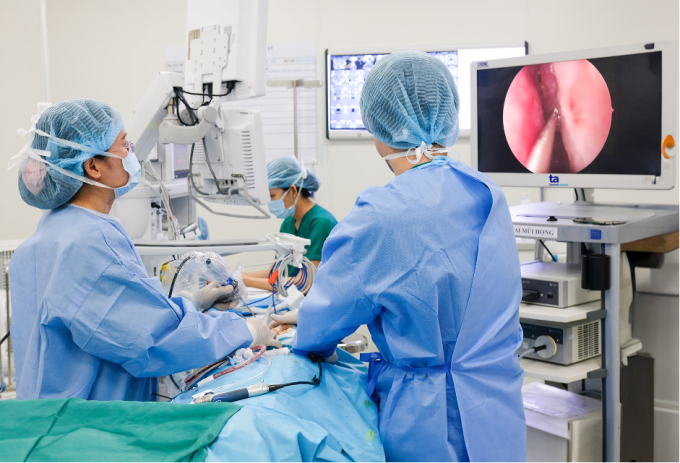
Doctor Hang (left) and Doctor Duy (right) perform endoscopic surgery to correct the patient's nasal septum. Photo: Tam Anh Hospital
MSc. Dr. Tran Thi Thuy Hang, Head of the Department of Otorhinolaryngology, said that about 80% of people have a deviated nasal septum but do not know it. Common causes of deviated nasal septum include congenital, nasal injury (accident, failed rhinoplasty), infection, aging... Mild cases do not require treatment. In cases where the function of the sinuses is affected, causing snoring and frequent nosebleeds, surgery is required.
Nasal turbinate hypertrophy occurs due to many causes such as long-term exposure to dust, cold, dry air. Self-medication with nasal drops causes nasal turbinate hypertrophy, narrowing of the nasal cavity, limited airflow affecting the amount of oxygen to the brain. Common symptoms are dizziness, nausea, memory loss... Long-term nasal turbinate hypertrophy can cause loss of olfactory function.
At night, the weather is cold, people are less active than during the day, so it is easy to get stuffy nose. Sleeping on your side causes blood to pool to one side, causing severe stuffy nose.
Patients with sinus abnormalities should see a doctor to diagnose the cause and receive appropriate treatment. Dr. Hang advises everyone to limit exposure to smoke, dust, and allergens. Wear a mask when going out, get a flu vaccine, keep your body warm, and avoid infectious diseases to prevent sinusitis.
Khanh Phuong
* Patient name has been changed
| Readers ask questions about ear, nose and throat diseases here to get answers from doctors. |
Source link


![[Photo] Unique folk games at Chuong Village Festival](https://vstatic.vietnam.vn/vietnam/resource/IMAGE/2025/4/10/cff805a06fdd443b9474c017f98075a4)
![[Photo] Prime Minister Pham Minh Chinh chairs meeting to discuss tax solutions for Vietnam's import and export goods](https://vstatic.vietnam.vn/vietnam/resource/IMAGE/2025/4/10/19b9ed81ca2940b79fb8a0b9ccef539a)










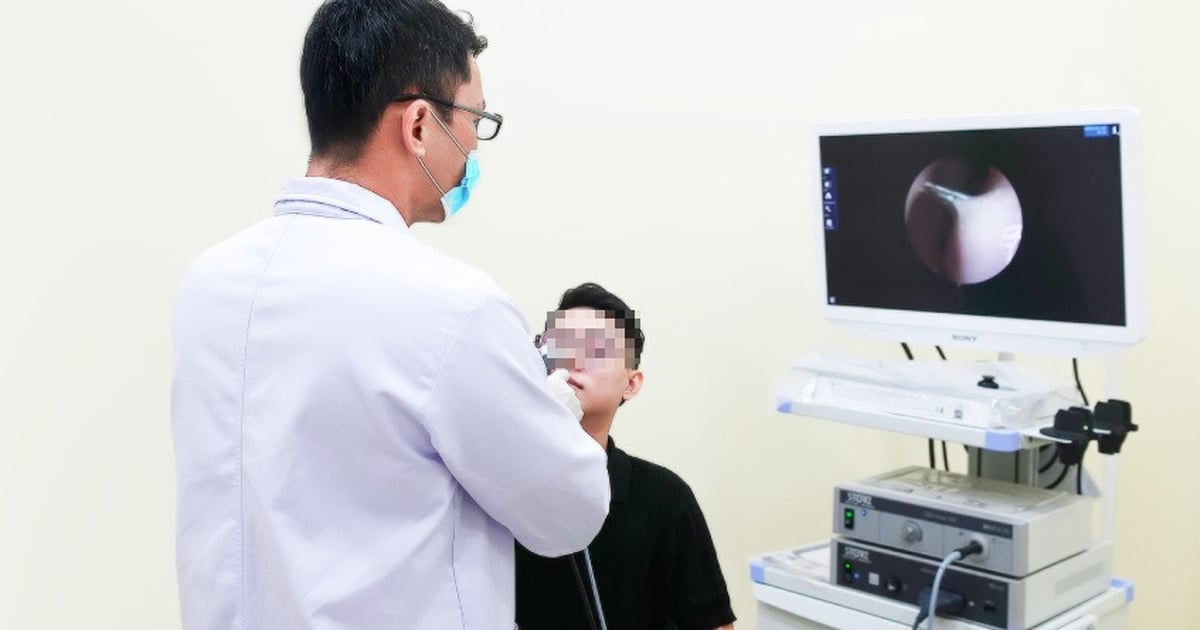


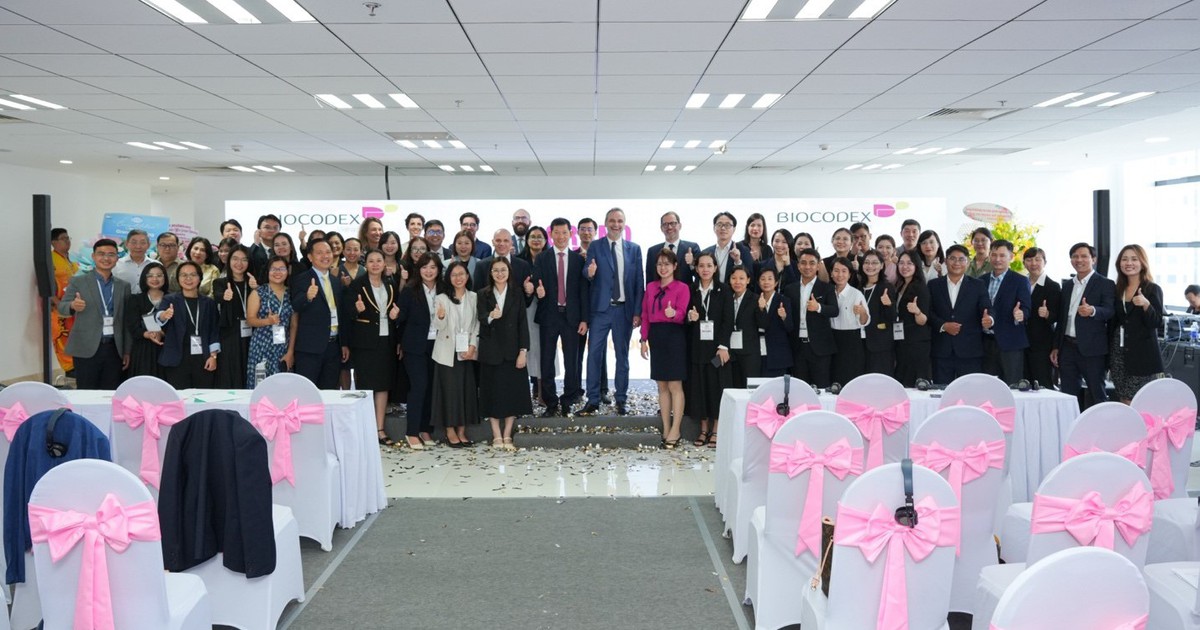


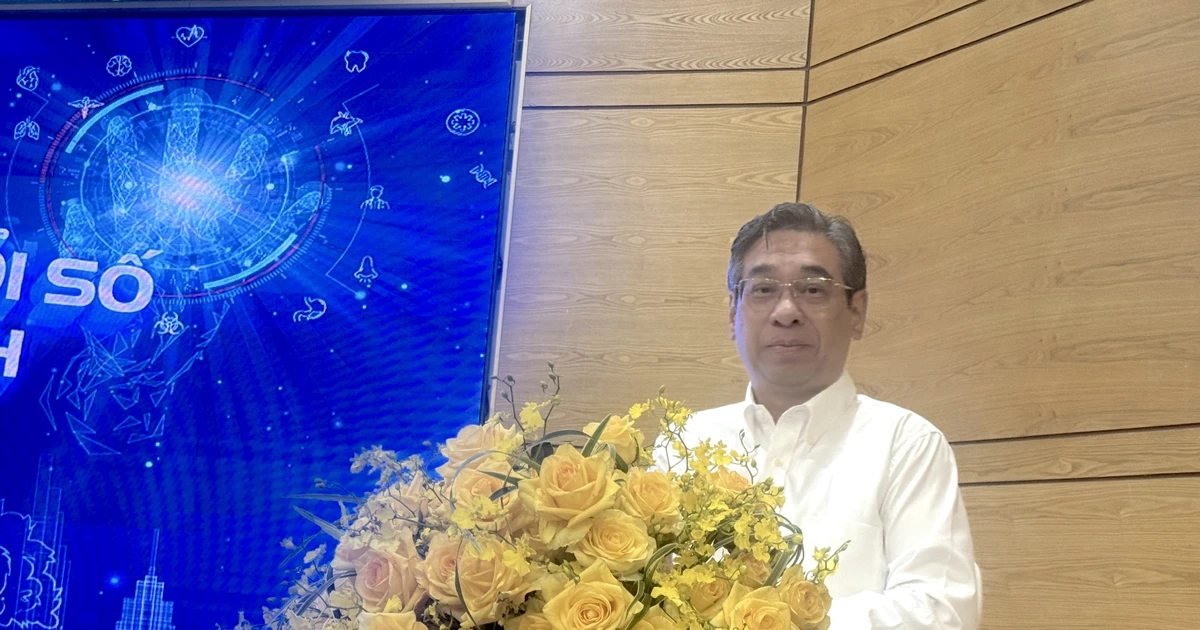

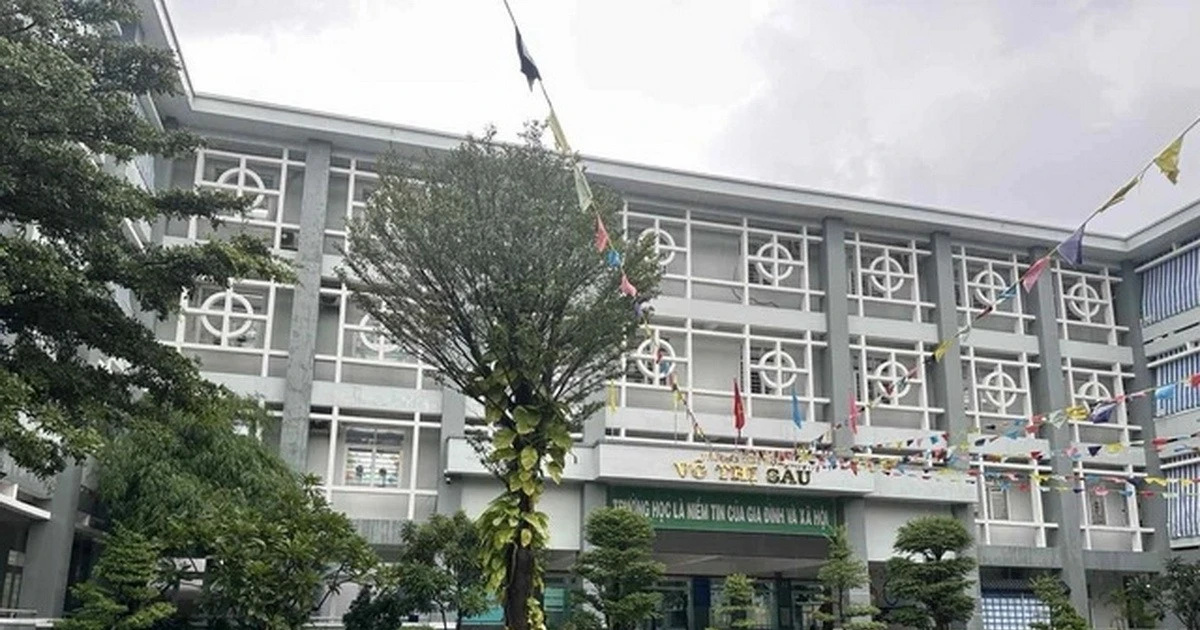










































































Comment (0)